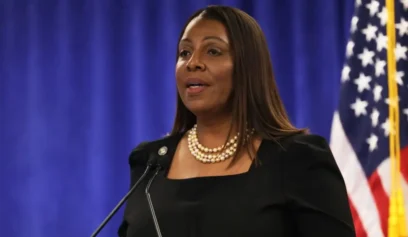Three former McDonald’s employees filed a federal racial discrimination claim against the fast-food giant and one of its franchisees.
The employees, who used to work at a location in Rock Island, Illinois, submitted the claim to the District Court for the Central District of Illinois on Tuesday, Oct. 13, reported Business Insider. The plaintiffs include Selynda Middlebrook, Stephanie Stevens, and Luther Gray, who is representing his 17-year-old daughter.

McDonald’s Corporation, McDonald’s USA, LLC, and Gendco, Inc., the franchise owner, are named as defendants.
Attorney George Luscombe III said in the court documents that the general manager of the Rock Island location “treats Black employees less favorably than non-Black employees, including by discriminatorily cutting their hours, leaving them with less income to support their families,” The Quad City Times reported.
Luscombe also claimed the managers “make disparaging and derogatory statements” about Black customers and employees. The managers allegedly referred to Black people as “ghetto” and “lazy, have the wrong attitude and cannot do simple tasks.”
“A Latina manager stated in the presence of employees that the Black employees were lazy, and that the Latino employees are the ones who do all the work,” the suit asserts, according to Nation’s Restaurant News.
Middlebrook got a job at McDonald’s to support her newborn daughter. However, she claims the hours she received resulted in $40 paychecks.
“I’m a new mother and I started to work at McDonald’s because I wanted to provide for my baby girl,” she said at the Oct. 13 news conference announcing the claim. “Every dollar in my paycheck was an investment in her future, and our future as a family, but McDonald’s quickly turned that dream into a nightmare.”
She also accused the management of verbally abusing their subordinates.
“At work, my Black coworkers and I were harassed and racially stereotyped,” Middlebrook recalled. “Ghetto, lazy, smelly; these are some of the words McDonald’s managers used to describe Black cooks and cashiers at our store. They even called me a waste of space and that I shouldn’t exist.”
Stevens, her aunt, says she lost her job in July after she stuck up for Middlebrook when a manager said her niece shouldn’t exist.
“We’re calling for a voice on the job because no one should be fired on the job for speaking up against racism,” Stevens said during the news conference.
Trina Gendron, owner of the Rock Island McDonald’s, claimed she had no tolerance for racism in her restaurant.
“I am deeply committed to running a values-led organization, and discrimination, harassment or retaliation of any kind are not tolerated in my restaurants,” she said in a statement. “I take these allegations seriously and am currently reviewing the complaint and investigating these allegations.”
This lawsuit is the fourth filed against McDonald’s in 2020. In September, 52 Black former McDonald’s franchisees filed a $1 billion suit. In it, the group accused the corporation of sticking them in undesirable, more expensive locations.
In July, three former McDonald’s employees who used to work at a Florida location filed a racial discrimination claim. It was amended on Oct. 13 to add claims two of the plaintiffs were fired for seeking legal assistance.
The first claim, filed in January, came from two Black executives who also accused the company of racial discrimination.
The lawyers representing the Rock Island plaintiffs believe the other claims demonstrate a “pattern or practice of McDonald’s corporate leadership’s failure to address pervasive racism and anti-Black sentiment throughout the organization, from executives in the C-suite to individual managers at restaurants throughout the country, resulting in a concomitant decline in Black franchisees, Black executives, and Black employees in restaurants nationwide.”


